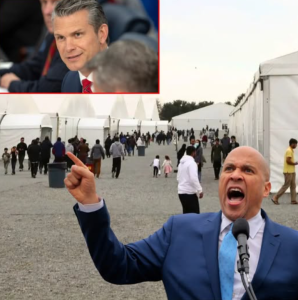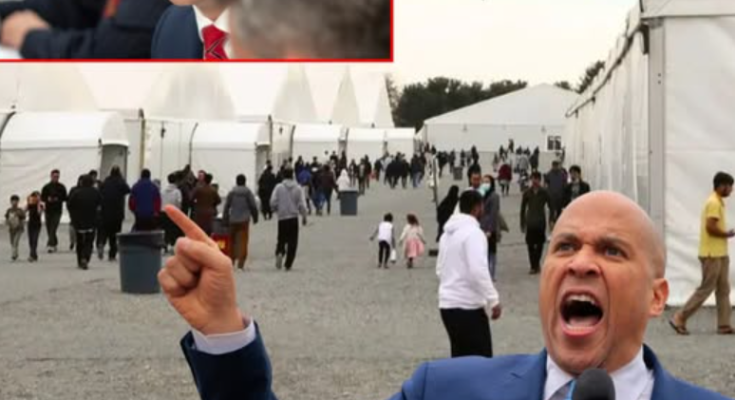In late July 2025, the Trump administration quietly advanced a controversial proposal to temporarily house undocumented migrants at two U.S. military installations: Camp Atterbury in Indiana and Joint Base McGuire–Dix–Lakehurst in New Jersey. This initiative marks a significant escalation in its immigration enforcement strategy, part of a broader push to nearly double ICE detention capacity—from 60,000 to 100,000 beds nationwide
Defense Secretary Pete Hegseth assured lawmakers that using these bases would not impair military readiness or operations. Similarly, Tom Homan, Trump’s border czar, emphasized the urgency of expanding facilities to “take more people off the street
Fierce Democratic Opposition
The announcement was met with swift and unified condemnation from Democratic officials and civil-rights groups across both states.
New Jersey
A bipartisan group of Democratic representatives—including Herb Conaway, LaMonica McIver, Donald Norcross, Rob Menendez, Frank Pallone, Bonnie Watson Coleman, Josh Gottheimer, Nellie Pou, plus Senators Cory Booker and Andy Kim—issued a scathing joint statement characterizing the move as “an inappropriate use of our national defense system” that militarizes radical immigration policy and threatens communities with broader ICE raids
Amol Sinha, executive director of the ACLU of New Jersey, warned that utilizing military infrastructure for immigrant detention sets a dangerous precedent that undermines constitutional values
This backlash follows earlier tensions, including a skirmish at Delaney Hall detention center in Newark, where Mayor Ras Baraka and Rep. LaMonica McIver were involved in a spirited protest—drawing federal charges and further heightening local frustration with federal immigrant enforcement policies
Indiana
Representative Andre Carson (D-IN) declared that the administration has offered no satisfactory answers regarding detainee conditions. He raised particular alarm at ICE’s rapidly growing need for space in Indiana, calling it “disturbing”
Immigrant rights advocates echoed these concerns, pointing to broader civil-liberties issues tied to this militarized approach.
Broader Context and Escalation
This is not an isolated policy tweak—it’s part of a sweeping strategy to expand deportation capabilities. Reuters reports that the administration is also constructing the largest U.S. federal migrant detention center at Fort Bliss in Texas, starting with 1,000 beds in August and scaling up to 5,000 beds soon after
Indiana also sees an auxiliary twist: the so-called “Speedway Slammer”—a 1,000-bed addition at the Miami Correctional Facility—has drawn backlash for its provocative branding and ethical tone. Immigrant-rights groups and even IndyCar officials criticized the racetrack-themed graphics, seeing them as trivializing serious humanitarian concerns
Democratic Arguments at a Glance
Let’s break down the core of Democratic criticism:
-
Misuse of Military Assets
Using U.S. military bases for immigrant detention, they argue, risks national defense readiness and shifts military purpose toward domestic enforcement at the expense of preparedness -
Civil-Liberties Concerns
Housing civilians in military contexts blurs the line between civilian justice and martial authority, raising alarms over oversight, detainee rights, and due process Precedent of Militarizing Policy
This policy echoes past controversial uses of military facilities for immigrant detention—such as family detention under Obama and Trump—even prompting questions about the motivations and propriety of repurposing military infrastructure -
Local Consequences
Political fallout already rippling in New Jersey—such as McIver’s federal charges and widespread protests—illustrates the deep local unease and mistrust such policies generate
Looking Ahead
With legal and political pressures mounting, Democratic lawmakers continue to demand transparency and push back against what they see as an authoritarian expansion of immigration enforcement. Oversight hearings loom, community rallies persist, and the broader debate over U.S. immigration policy remains deeply polarized.
If you’d like, I can also prepare a more concise brief, analysis of possible legal challenges, or a breakdown of how this fits into historical patterns of military use in civilian policy.



